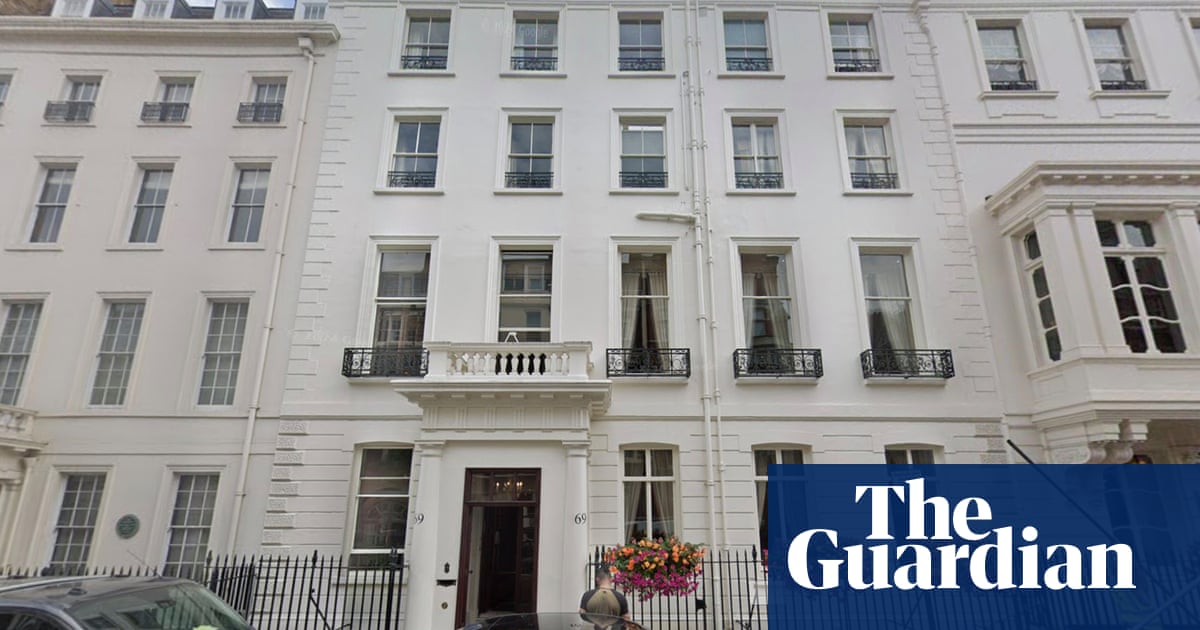
Members of the 140-year-old Flyfishers’ Club have voted to allow women to become members after decades of resisting calls to reform its rules.
A 75% majority of members voted in favour of rewriting rule one of the club’s rulebook to permit women to become members, substantially in excess of the two-thirds majority required for change, the club announced. The turnout was 84%.
Several high-profile female anglers wrote to the club earlier this year protesting against its discriminatory stance on female members. They said they were prompted to push for change after the membership policy of the Garrick Club, another men-only institution, came under renewed scrutiny.
The Flyfishers’ Club, which has the king as its patron, said in a statement its managing committee had recommended that members voted in favour of allowing women to join, adding: “This vote will secure a bright future for the club as a welcoming but exclusive home in London for the best, most enthusiastic and most influential in the flyfishing community.”
Aime Battams, a campaigner against elitism in fishing who wrote to the club in the spring to express her sadness that it had “not evolved to include women”, welcomed the result. She said she did not anticipate joining because of the expense of the club’s fees, but stressed that it was a significant symbolic advance. “There has been an institutional exclusion of women for too long; times have changed but that exclusion still lingers. This is great news,” she said.
Since the 1970s, women have said the Flyfishers’ Club’s men-only rules should be changed, but their requests have previously been ignored or rejected by the 600 or so members of the Mayfair institution.
Lucy Mantle, th chair of City Flickers, a fly-fishing club that campaigns to get more young people involved in the sport, was also pleased at the result. She wrote an open letter to the club in March, stressing that change was necessary, not least because the UK’s fishing community was an important force in campaigning for the protection of Britain’s rivers.
“Fishing of all kinds has been show to improve mental health and reconnect us with nature and the environment. At a time when the need to defend our environment and, in particular, our precious rivers is paramount, the exclusion of half the population from entry to debate in the corridors of influence seems profoundly unwise,” she wrote.
Marina Gibson, who this year described in her memoir Cast Catch Release the misogyny she has faced launching and running a fishing school in North Yorkshire, had also called on the club to change. “This is a significant milestone, demonstrating that fishing is inclusive and open to change. I’m impressed that the Flyfishers’ club has taken this matter seriously, and I hope that those members who were initially resistant to change will soon recognise the benefits of welcoming women,” she said.
The Flyfishers’ is housed in two upstairs rooms in the cream stuccoed Savile Club building, an institution founded in 1868 for writers and artists, which also does not permit women to join. Members of the Savile met last month to discuss whether they, too, should change their rules.
In a document summarising arguments made during the meeting, those in favour of change were said to have noted that Savile members were resigning because they felt “they cannot continue at a club that decides to continue not to accept women” and added that the club’s no-female-members rule meant it was becoming more challenging to rent out rooms commercially.
after newsletter promotion
They also argued that the slow process of approving new members meant it would be years before many women would be able to join, so a rule change would in any case have “a scarcely noticeable impact on the atmosphere in the club”.
Members who opposed admitting women to the Savile Club felt that “there is something ‘predictable’ about an all-male space of this kind, which can make members feel ‘comfortable’”.
“Men can interact in a way they otherwise could not do. It does not matter how many or how few women members there are, they would disrupt the special atmosphere of this space. For women are different from men,” the meeting summary noted.
Source: theguardian.com

















